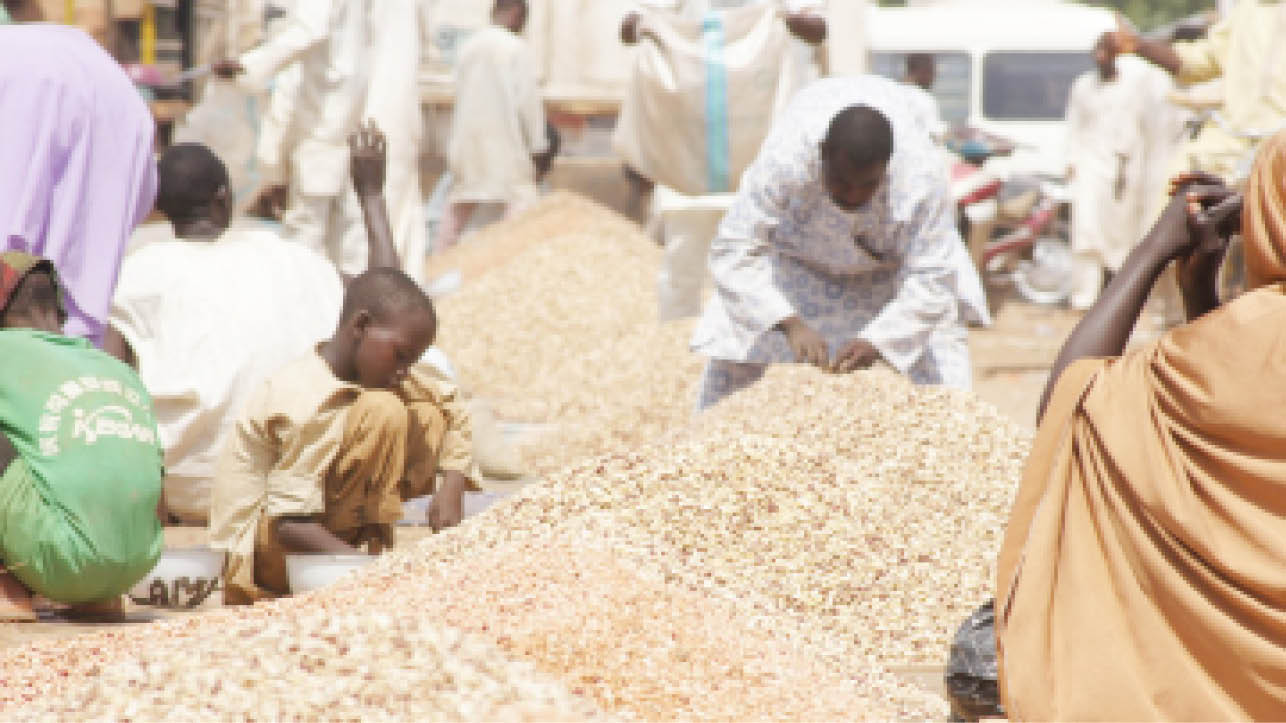Residents worry over high cost of foodstuffs
Many residents of Kano have raised the alarm at the high cost of foodstuffs being experienced in the state, a situation they described as a great challenge to their wellbeing and their families. Daily Trust investigation revealed that the price of foodstuffs is increasing daily and many households hardly eat three times in a day […]

Business activities at Dawanau grains market
Many residents of Kano have raised the alarm at the high cost of foodstuffs being experienced in the state, a situation they described as a great challenge to their wellbeing and their families.
Daily Trust investigation revealed that the price of foodstuffs is increasing daily and many households hardly eat three times in a day as they lamented that, “Food is going beyond the reach of ordinary citizens”.
- Obasanjo to Clark: Niger Delta can’t claim oil ownership while in Nigeria
- NIGERIA DAILY: The Myth and Truth Around Covid19 Vaccines
A market survey carried out by our reporter indicated that a bag of paddy rice, which was N13, 000 is now selling at N18, 000 and 50kg of milled rice is now selling at N25, 000 as against N22, 000. It was also found that 100kg of beans is selling at N39, 000 while a bag of millet is now N22, 000.
It was also gathered that 100kg of maize is now selling at N22, 000 and the price of almost every food item has been reviewed upward.
A grain merchant at Dawanau International Grains Market, Alhaji Danliti Muhammad said the high cost of food items at this period was unusual and alarming.
“This is a time that we usually experience a drop in the price of foodstuffs, unfortunately, the price keeps going up and the development is sending a signal to households who are managing to survive.
“The purchasing power of individuals is becoming weaker and weaker by the day, it is, therefore, scary to be recording such inflation in the food sector,” he said.
Malam Idris Bello, a father of five and a civil servant; said the situation was changing from bad to worse everyday as many people could not afford three meals in a day.
He explained that many families were complaining not because they don’t eat but because they could not eat adequately.
“If someone’s salary could enable him to provide food for three weeks in a month before, it is only by chance such a person could now make provision for two weeks due to the high cost of commodities in the market,” he lamented.
Similarly, another civil servant, Malam Ibraheem Mu’azu, said there was a need for the government to wade in before things get out of hand.
He said while food merchants were busy smiling to the bank, many households were finding it very difficult to afford basic food needed by their families.
Mu’azu, therefore, suggested that the state government should have an effective price control mechanism that would help in addressing the looming crisis in the food sector and by extension inflation in the country.
